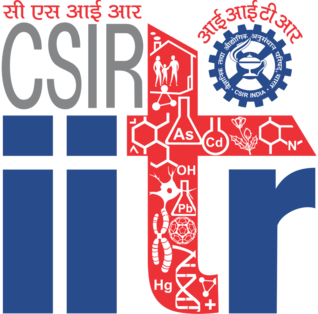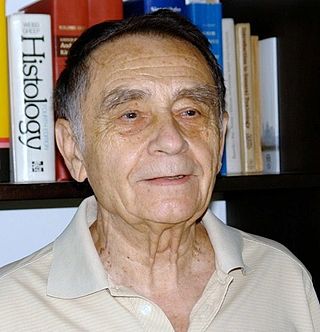
Pneumoconiosis is the general term for a class of interstitial lung disease where inhalation of dust has caused interstitial fibrosis. The three most common types are asbestosis, silicosis, and coal miner's lung. Pneumoconiosis often causes restrictive impairment, although diagnosable pneumoconiosis can occur without measurable impairment of lung function. Depending on extent and severity, it may cause death within months or years, or it may never produce symptoms. It is usually an occupational lung disease, typically from years of dust exposure during work in mining; textile milling; shipbuilding, ship repairing, and/or shipbreaking; sandblasting; industrial tasks; rock drilling ; or agriculture. It is one of the most common occupational diseases in the world.

Black lung disease (BLD), also known as coal workers' pneumoconiosis, or simply black lung, is an occupational type of pneumoconiosis caused by long-term inhalation and deposition of coal dust in the lungs and the consequent lung tissue's reaction to its presence. It is common in coal miners and others who work with coal. It is similar to both silicosis from inhaling silica dust and asbestosis from inhaling asbestos dust. Inhaled coal dust progressively builds up in the lungs and leads to inflammation, fibrosis, and in worse cases, necrosis.

The Indian Institute of Toxicology Research is a laboratory run under the aegis of Council of Scientific and Industrial Research. It was established in 1965 by Sibte Hasan Zaidi and has its main campus in Lucknow with a satellite campus at Gheru. The research is centered in the Asia-Pacific region.
Allied Academies is a reportedly fraudulent corporation chartered under the laws of North Carolina. Its postal address is in London, United Kingdom. It presents itself as an association of scholars, with supporting and encouraging research and the sharing and exchange of knowledge as its stated aims. The organization consists of 30 affiliate academies, which provide awards to academics and publish academic journals both online and in hard copy for members. Since 2015 the organization has been listed on Jeffrey Beall's list of "potential, possible, or probable predatory scholarly open-access publishers". It is in a partnership with OMICS Publishing Group which uses its website and logo. In 2018, OMICS owner Srinubabu Gedela declared that he had informed the Nevada court that Allied Academies was a subsidiary of OMICS International. During a conference in 2018, they falsely listed a prominent chemist among its organizing committee who had not agreed to this and was not affiliated with Allied Academies.
The Institute of Occupational Medicine (IOM) was founded in 1969 by the National Coal Board (NCB) as an independent charity in Edinburgh, UK and retains its charitable purpose and status today. The "Institute" has a subsidiary, IOM Consulting Limited, which became fully independent in 1990 and now celebrates its 25th year within the IOM Group as an independent consultancy and also the commercial part of the IOM organization. It specializes in asbestos surveys and services, occupational hygiene services, nanotechnology safety, laboratory analysis and expert witness consulting services. IOM is therefore one of the UK's major independent "not for profit" centres of science in the fields of environmental health, occupational hygiene and occupational safety.
Vasant Ramji Khanolkar, better known as V. R. Khanolkar, was an Indian pathologist. He made major contributions to the epidemiology and understanding of cancer, blood groups, and leprosy. He has been called the "Father of Pathology and Medical Research in India."

Mirosław Jan Stasik was a Polish medical doctor and research toxicologist.

Aluminium phosphide poisoning is poisoning that occurs as a result of excessive exposure to aluminium phosphide (AlP), which is readily available as a fumigant for stored cereal grains and sold under various brand names such as QuickPhos, Salphos and Celphos. Aluminium phosphide is highly toxic, especially when consumed from a freshly opened container. Acute aluminium phosphide poisoning (AAlPP) is a large though under-reported problem throughout the world, particularly in the Indian subcontinent.
Dorairajan Balasubramanian, popularly known as Professor Balu, is an Indian biophysical chemist and ocular biochemist. He is a former President of Indian Academy of Sciences and a director of research at the Prof. Brien Holden Eye Research Centre of L. V. Prasad Eye Institute, Hyderabad. A recipient of the National Order of Merit (France), Balasubramanian was honored by the Government of India, in 2002, with the fourth highest Indian civilian award of Padma Shri.
Bishnupada Mukerjee or Bishnupada Mukhopadhyaya was an Indian pharmacologist and orthopedic surgeon, known for his contributions in the fields of pharmacological research and standardization of drugs in India. The Government of India honoured him in 1962, with the award of Padma Shri, the fourth highest Indian civilian award for his services to the nation.
Madhav Gajanan Deo is an Indian oncologist, pathologist and educationist, known for his contributions to the field of Molecular medicine. He is the founder president of the Indian Association of Cancer Research and one of the founders of the Moving Academy of Medicine and Biomedicine. He is a recipient of the Om Prakash Bhasin Award. The Government of India awarded him the fourth highest civilian award of Padma Shri in 1990.
Occupational toxicology is the application of toxicology to chemical hazards in the workplace. It focuses on substances and conditions that people may be exposed to in workplaces, including inhalation and dermal exposures, which are most prevalent when discussing occupational toxicology. These environmental and individual exposures can impact health, and there is a focus on identifying early adverse affects that are more subtle than those presented in clinical medicine.
Toppur Seethapathy Sadasivan was an Indian plant pathologist, academic and the director of the Centre for Advanced Studies in Botany of the University of Madras. He was the founder of the School of Physiological Plant Pathology at Madras University and was a recipient of the Shanti Swarup Bhatnagar Prize, the highest Indian award in the science category. He was an elected fellow of the Indian Academy of Sciences, Indian National Science Academy and Indian Botanical Society and an elected member of the Academy of Sciences Leopoldina. The Government of India awarded him the third highest civilian honour of the Padma Bhushan, in 1974, for his contributions to science.
Shiv Kumar Sarin is an Indian gastroenterologist, hepatologist, translational scientist, researcher and teacher. He set up the Institute of Liver and Biliary Sciences. He is a recipient of the Shanti Swarup Bhatnagar Prize and the Padma Bhushan. He served as chairman of the Board of Governors of Medical Council of India. He was the president of the Asian Pacific Association for the Study of the Liver and founder of Asian Pacific School of Hepatology.
Umesh Chandra Chaturvedi was an Indian virologist, immunologist, medical microbiologist, CSIR Emeritus Scientist and a former chairman of the Bharat Immunologicals and Biologicals Corporation. The founder head of the department of microbiology at King George's Medical University, he is known for his studies on Dengue virus infection. Chaturvedi is an elected fellow of all the three major Indian science academies viz. Indian Academy of Sciences, National Academy of Sciences, India and the Indian National Science Academy as well as the Royal College of Pathologists and National Academy of Medical Sciences. The Council of Scientific and Industrial Research, the apex agency of the Government of India for scientific research, awarded him the Shanti Swarup Bhatnagar Prize for Science and Technology, one of the highest Indian science awards for his contributions to Medical Sciences in 1981.
Shyam Swarup Agarwal was an Indian geneticist, immunologist and the director of Sanjay Gandhi Postgraduate Institute of Medical Sciences (SGPGI-MS), Lucknow. A former director of the Advanced Center for Treatment, Research and Education in Cancer (ACTREC) at the Tata Memorial Centre, he was the pioneer of medical genetics and clinical immunology education in India. Known for his researches in the fields of genetics and molecular biology, he was an Emeritus Professor of the National Academy of Medical Sciences, and an elected fellow of all the three major Indian science academies, namely, the Indian Academy of Sciences, National Academy of Sciences, India, and the Indian National Science Academy. The Council of Scientific and Industrial Research, the apex agency of the Government of India for scientific research, awarded him the Shanti Swarup Bhatnagar Prize for Science and Technology, one of the highest Indian science awards for his contributions to Medical Sciences in 1986.

Narinder Kumar Mehra is an Indian immunologist, head of the department of transplant immunology and immunogenetics of the SRL Limited, Gurgaon. He is a former dean of research and holds the ICMR Dr. C.G. Pandit National Chair at AIIMS. An elected fellow of the International Medical Sciences Academy, The World Academy of Sciences, Indian National Science Academy and National Academy of Sciences, India, Mehra is known for his research on histocompatibility and immunogenetics. The Council of Scientific and Industrial Research, the apex agency of the Government of India for scientific research, awarded him the Shanti Swarup Bhatnagar Prize for Science and Technology, one of the highest Indian science awards for his contributions to Medical Sciences in 1992. He received the Chevalier of the National Order of Merit from François Mitterrand in 2003.
Dennis J. Paustenbach PhD, CIH, DABT, is an American scientist, businessman, researcher, and author. Dennis is currently President of Paustenbach and Associates, which is a consulting firm who uses risk assessment techniques to characterize occupational and environmental health hazards. He is the founder and former president of ChemRisk, a consulting firm specializing in the use of toxicology and risk assessment to characterize the hazards of chemicals in soil, air, water, food, sediments and consumer products. He was, for about 4 years, a Group Vice-President of Exponent.

Nikolai Fedotovich Izmerov was a Soviet and Russian occupational hygienist and public figure, who made significant contributions to occupational hygiene.






